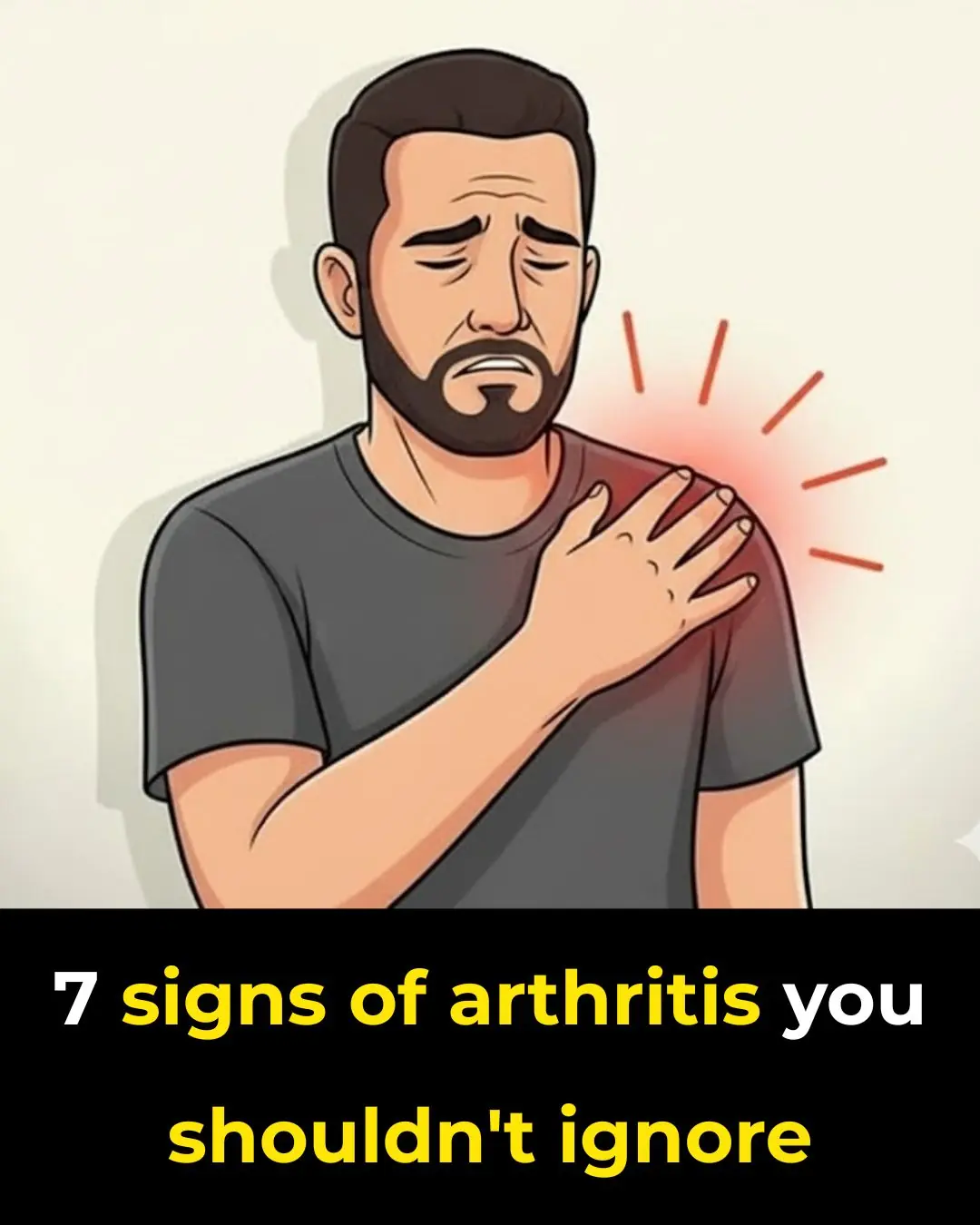
25 Worrying Signs Your Body Is Trying to Warn You of Serious Health Problems (and What to Do About Them)
Our bodies are constantly communicating with us. Sometimes the messages come as quiet whispers—small discomforts or subtle changes. Other times, they shout through persistent pain or unusual symptoms. Ignoring these signals can lead to bigger health problems down the road. Learning to recognize early warning signs lets you take action before issues escalate.
Below are 25 worrying signs your body may be sending—and practical tips on what to do about them.
1. Persistent Fatigue
Feeling exhausted despite a full night’s sleep? It could point to thyroid problems, anemia, or chronic fatigue syndrome.
Tip: Get your iron and thyroid levels checked by a doctor.
2. Sudden Weight Loss
Unexplained weight loss may indicate diabetes, thyroid issues, or even cancer.
Tip: Track your diet carefully and consult a healthcare provider if your weight drops without lifestyle changes.
3. Shortness of Breath
If light activity leaves you breathless, it may signal heart or lung disease.
Tip: Avoid smoking and seek medical help if symptoms worsen.
4. Frequent Headaches
Recurrent headaches can be caused by stress, vision issues, or high blood pressure.
Tip: Stay hydrated, manage stress, and schedule an eye exam.
5. Chest Pain
A heavy or squeezing sensation could be a heart attack or angina warning.
Tip: Never ignore chest pain—call emergency services immediately.
6. Severe Abdominal Pain
Sharp or persistent stomach pain might be gallstones, ulcers, or appendicitis.
Tip: Keep a food diary and seek urgent care for intense pain.
7. Skin Changes
Dark spots, new moles, or unusual patches could indicate skin cancer.
Tip: Use sunscreen daily and have suspicious moles checked by a dermatologist.
8. Swelling in Legs or Feet
Could be a sign of poor circulation, kidney issues, or heart failure.
Tip: Limit salt, elevate your legs, and see a doctor if swelling continues.
9. Unexplained Bruising
Frequent bruises without injury might signal clotting disorders or leukemia.
Tip: Monitor vitamin K intake and consult your doctor if bruising persists.
10. Vision Problems
Blurry or double vision, or sudden vision loss, may indicate diabetes, stroke, or eye disease.
Tip: Get regular eye exams and maintain good blood sugar control.
11. Constant Thirst
Excessive thirst often points to diabetes or dehydration.
Tip: Limit sugary drinks and have your blood sugar tested.
12. Frequent Urination
Could signal prostate problems or diabetes.
Tip: Cut back on caffeine and alcohol and consult your doctor.
13. Loss of Appetite
May be linked to liver disease or depression.
Tip: Eat small, nutrient-rich meals and seek medical advice.
14. Persistent Cough
Lasting over 3 weeks, this might be asthma, GERD, or lung cancer.
Tip: Avoid smoking, stay hydrated, and see a doctor if it doesn’t improve.
15. Night Sweats
Heavy sweating at night can indicate infections, hormonal changes, or lymphoma.
Tip: Keep your bedroom cool and schedule a medical check-up.
16. Memory Problems
Forgetting important details may signal early Alzheimer’s or vitamin deficiencies.
Tip: Challenge your brain with puzzles and eat a balanced diet.
17. Tingling in Hands or Feet
Might suggest nerve damage, diabetes, or poor circulation.
Tip: Stretch regularly, avoid sitting too long, and get tested for diabetes.
18. Frequent Heartburn
Persistent acid reflux can damage the esophagus and lead to cancer.
Tip: Avoid spicy foods, eat smaller meals, and elevate your head while sleeping.
19. Slow-Healing Wounds
Cuts that don’t heal quickly may be a sign of diabetes or immune issues.
Tip: Keep wounds clean, monitor blood sugar, and seek medical care.
20. Irregular Heartbeat
Palpitations can be harmless but also indicate arrhythmia or heart disease.
Tip: Reduce caffeine and stress; see a cardiologist if it continues.
21. Joint Pain
Stiffness or pain may point to arthritis or autoimmune disorders.
Tip: Stay active with low-impact exercises like swimming or yoga.
22. Difficulty Swallowing
Trouble swallowing could be due to esophageal disorders or cancer.
Tip: Eat slowly, take small bites, and consult your doctor.
23. Constant Bloating
Persistent bloating may indicate food intolerances, IBS, or ovarian cancer.
Tip: Track foods that trigger symptoms and avoid carbonated drinks.
24. Dizziness
Feeling lightheaded can be caused by low blood pressure, anemia, or dehydration.
Tip: Stay hydrated and avoid standing up too quickly.
25. Bleeding Gums
Often caused by gum disease but can also signal vitamin deficiencies or blood disorders.
Tip: Improve dental hygiene and schedule regular dentist visits.
Final Thoughts
Your body is your best messenger. Minor symptoms can be clues to serious health issues if ignored. By paying attention to these 25 warning signs and making simple lifestyle changes, you can protect yourself from long-term damage.
👉 Pro Tip: Don’t self-diagnose. Use these signs as a guide, but always consult a healthcare professional for proper diagnosis and treatment.
News in the same category


The Wonderful Hazel Tree (Corylus avellana): Nutrition, Healing, and Traditional Uses of Every Part

Boiling a Whole Avocado: The Secret to Softness, Nutrition, and a Delicious Baked Recipe

The Hidden Healing Power of Papaya Leaves

Sugar Apple (Annona squamosa): A Sweet Fruit with Powerful Health Benefits

The Hidden Power of Lactuca serriola Root (Prickly Lettuce Root)

Maple Trees from Root to Crown: A Complete Guide to Every Edible Part

California Poppy: Nature’s Gentle Remedy for Relaxation and More

Euphorbia Hirta: 30 Benefits and How to Use It Safely

The Hidden Power of Common Lantana (Lantana camara): What You Can Safely Do with It at Home

Turn Papaya Leaves Into a Powerful Homemade Detergent

Wild Lettuce Root – Benefits, Uses, and Natural Pain Relief Properties

The Datura Genus: Why You Should Keep Your Distance from These Toxic Plants

Pokeweed: The Attractive but Highly Toxic Plant Growing in Your Backyard

The Ultimate Healing Tonic: A Powerful Drink to Combat Swollen Feet, Diabetes and Poor Circulation

Cynodon dactylon (Bermuda Grass): Benefits and Uses

Exploring the Health Benefits of Common Mallow: A Nutritional Powerhouse

Mint: The Miracle Herb for Health, Healing, and Refreshment

Goldenberries (Physalis peruviana): A Nutrient-Packed Powerhouse for Health and Vision
News Post

The Powerful Health Benefits of Papaya Seeds: Why You Should Include Them in Your Diet

The Wonderful Hazel Tree (Corylus avellana): Nutrition, Healing, and Traditional Uses of Every Part

Boiling a Whole Avocado: The Secret to Softness, Nutrition, and a Delicious Baked Recipe

The Hidden Healing Power of Papaya Leaves

Sugar Apple (Annona squamosa): A Sweet Fruit with Powerful Health Benefits

If you find a centipede at home, here is what it means...

Why We Feel That Little Electric Sh0ck When We Touch Another Person—Science Explains

If a Man Doesn’t Appreciate You, Here’s What You Should Do

The Hidden Power of Lactuca serriola Root (Prickly Lettuce Root)

Why You Should Stop Waking Up to Urinate

4 types of vegetables are full of parasites but many people still eat them raw every day

Hidden Dangers in Your Mouth: Early Signs of Oral Cancer

Maple Trees from Root to Crown: A Complete Guide to Every Edible Part

7 Signs of Arthritis You Shouldn't Ignore

California Poppy: Nature’s Gentle Remedy for Relaxation and More

What is its purpose. see details

When a woman stops loving a man, she begins…

5 hygiene mistakes that many people make... but no one dares to talk about...
